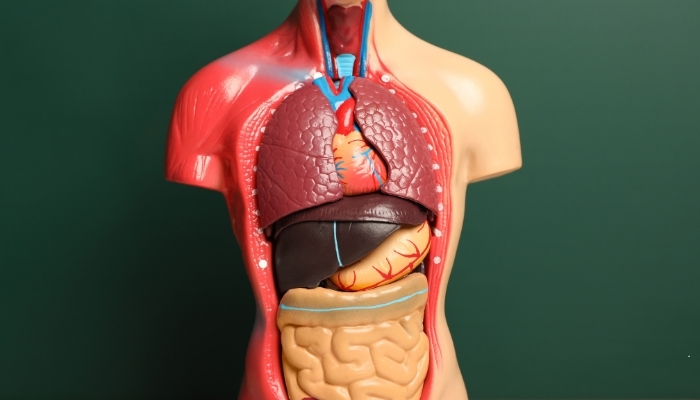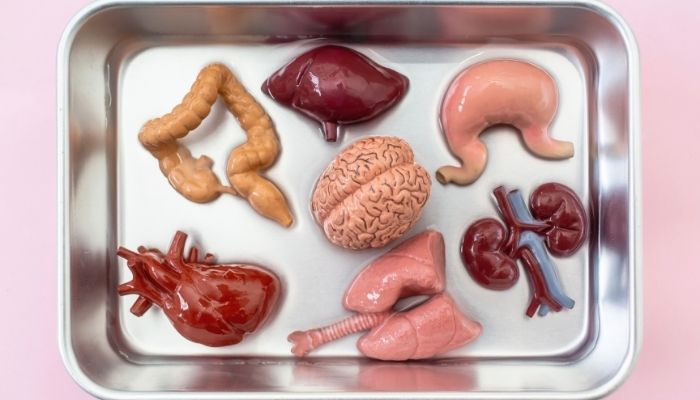Internal Medicine
HEALTH APPLICATIONS
Internal Medicine is a branch of medicine that manages the diagnosis, treatment and follow-up processes of adult patients and deals with a wide range of health problems. Internal medicine, also known as internal medicine, covers the diagnosis and treatment of many diseases that concern general body health. Private Jimer Hospital Internal Medicine Department evaluates the general health status of patients, diagnoses many chronic and acute diseases and meticulously manages the treatment processes.

What Diseases Does the Internal Medicine Department Deal With?
The Internal Medicine department diagnoses and treats many different disorders and diseases that concern the health of adults. The most common internal diseases are:
- **Hypertension**: A condition in which blood pressure is higher than normal. Hypertension can lead to serious complications such as heart attack, stroke and kidney disease. Internal medicine specialists recommend medication and lifestyle changes to control blood pressure.
- **Diabetes**: A condition in which blood sugar is higher than normal. There are two types: Type 1 and Type 2 diabetes. The Internal Medicine department organizes medication, diet and exercise programs to control diabetes.
- **Thyroid Diseases**: Hyperthyroidism and hypothyroidism, which occur as a result of over or underactivity of the thyroid gland, can lead to changes in metabolic rate. Internal Medicine specialists determine appropriate treatment methods to balance hormone levels.
- **Cholesterol and Lipid Disorders**: Higher than normal blood fats increase the risk of cardiovascular disease. Drug therapy and diet recommendations are made to control cholesterol levels.
- **Gastrointestinal Diseases**: Conditions such as stomach and intestinal problems, indigestion, ulcers, reflux and irritable bowel syndrome (IBS) are evaluated and treated by the Internal Medicine department.
- **Chronic Kidney Disease**: Decreased kidney function and kidney failure are among the conditions followed by internal medicine specialists. Drug therapy and diet adjustments are made in the treatment of kidney diseases.
- **Infectious Diseases**: Flu, pneumonia, urinary tract infections and other infectious diseases are among the diseases diagnosed and treated by the Internal Medicine department. Appropriate antibiotic and antiviral treatment helps control infections.
- **Rheumatic Diseases**: Diseases that occur as a result of the immune system attacking the joints, such as rheumatoid arthritis and lupus, are evaluated by the Internal Medicine Department and the treatment process is planned.
Diagnostic and Therapeutic Methods Applied in Internal Medicine
The Internal Medicine Department uses many different methods in the diagnosis and treatment of diseases. Private Jimer Hospital offers the best health service to our patients with modern laboratory facilities and imaging methods:
- **Physical Examination and Clinical Evaluation**: Patients' complaints, medical history and general health status are evaluated in detail. Physical examination is the first step in the diagnosis of diseases.
- **Laboratory Tests**: Blood, urine and other biochemical tests play an important role in the diagnosis of diseases and the evaluation of the general health status of patients. Parameters such as blood sugar, cholesterol and hormone levels are determined by laboratory tests.
- **Imaging Methods**: X-ray, ultrasound, computerized tomography (CT) and magnetic resonance imaging (MRI) are imaging methods used in the diagnosis of diseases. These methods are helpful in evaluating the structure and function of internal organs.
- **Electrocardiography (ECG)**: It is a method used in the evaluation of heart health. ECG helps in the diagnosis of heart diseases by measuring the electrical activity of the heart.
- **Endoscopy and Colonoscopy**: Endoscopy and colonoscopy, which are used in the diagnosis of stomach and intestinal problems, help diagnose diseases by examining the internal structure of the digestive system.
Internal Medicine Recommendations for a Healthy Life
The Internal Medicine Department offers some recommendations for preventing diseases and living a healthy life. Here are the recommendations of the Internal Medicine Department for a healthy life:
- **Balanced Nutrition**: A balanced diet that includes all food groups is important for general health. Foods that are low in sugar and fat and high in fiber should be preferred.
- **Regular Exercise**: Moderate physical activity for at least 150 minutes a week protects heart health and balances blood pressure and blood sugar.
- **Limiting Smoking and Alcohol Use**: Smoking and excessive alcohol consumption increase the risk of many chronic diseases. Therefore, it is recommended to quit or limit smoking and alcohol use.
- **Regular Health Check-ups**: Having a general health check-up once a year helps to detect diseases at an early stage and start treatment.
- **Stress Management**: Chronic stress can pave the way for the emergence of many diseases. Relaxation techniques, meditation and regular physical activity are useful for coping with stress.

Internal Medicine Services at Private Jimer Hospital
The Department of Internal Medicine at Private Jimer Hospital offers comprehensive health services with modern medical methods and expert staff to protect the health of adult patients and to diagnose and treat diseases. Our specialist internal medicine doctors evaluate each patient's health status individually, prepare treatment plans specific to the diseases and closely follow the treatment process.
Our aim is to support our patients in living a healthy life, treat their diseases in the most effective way and increase their quality of life. We are with you for your health with modern diagnosis and treatment methods.

What Diseases Does the Internal Medicine Department Deal With?
The Internal Medicine department diagnoses and treats many different disorders and diseases that concern the health of adults. The most common internal diseases are:
- **Hypertension**: A condition in which blood pressure is higher than normal. Hypertension can lead to serious complications such as heart attack, stroke and kidney disease. Internal medicine specialists recommend medication and lifestyle changes to control blood pressure.
- **Diabetes**: A condition in which blood sugar is higher than normal. There are two types: Type 1 and Type 2 diabetes. The Internal Medicine department organizes medication, diet and exercise programs to control diabetes.
- **Thyroid Diseases**: Hyperthyroidism and hypothyroidism, which occur as a result of over or underactivity of the thyroid gland, can lead to changes in metabolic rate. Internal Medicine specialists determine appropriate treatment methods to balance hormone levels.
- **Cholesterol and Lipid Disorders**: Higher than normal blood fats increase the risk of cardiovascular disease. Drug therapy and diet recommendations are made to control cholesterol levels.
- **Gastrointestinal Diseases**: Conditions such as stomach and intestinal problems, indigestion, ulcers, reflux and irritable bowel syndrome (IBS) are evaluated and treated by the Internal Medicine department.
- **Chronic Kidney Disease**: Decreased kidney function and kidney failure are among the conditions followed by internal medicine specialists. Drug therapy and diet adjustments are made in the treatment of kidney diseases.
- **Infectious Diseases**: Flu, pneumonia, urinary tract infections and other infectious diseases are among the diseases diagnosed and treated by the Internal Medicine department. Appropriate antibiotic and antiviral treatment helps control infections.
- **Rheumatic Diseases**: Diseases that occur as a result of the immune system attacking the joints, such as rheumatoid arthritis and lupus, are evaluated by the Internal Medicine Department and the treatment process is planned.
Diagnostic and Therapeutic Methods Applied in Internal Medicine
The Internal Medicine Department uses many different methods in the diagnosis and treatment of diseases. Private Jimer Hospital offers the best health service to our patients with modern laboratory facilities and imaging methods:
- **Physical Examination and Clinical Evaluation**: Patients' complaints, medical history and general health status are evaluated in detail. Physical examination is the first step in the diagnosis of diseases.
- **Laboratory Tests**: Blood, urine and other biochemical tests play an important role in the diagnosis of diseases and the evaluation of the general health status of patients. Parameters such as blood sugar, cholesterol and hormone levels are determined by laboratory tests.
- **Imaging Methods**: X-ray, ultrasound, computerized tomography (CT) and magnetic resonance imaging (MRI) are imaging methods used in the diagnosis of diseases. These methods are helpful in evaluating the structure and function of internal organs.
- **Electrocardiography (ECG)**: It is a method used in the evaluation of heart health. ECG helps in the diagnosis of heart diseases by measuring the electrical activity of the heart.
- **Endoscopy and Colonoscopy**: Endoscopy and colonoscopy, which are used in the diagnosis of stomach and intestinal problems, help diagnose diseases by examining the internal structure of the digestive system.
Internal Medicine Recommendations for a Healthy Life
The Internal Medicine Department offers some recommendations for preventing diseases and living a healthy life. Here are the recommendations of the Internal Medicine Department for a healthy life:
- **Balanced Nutrition**: A balanced diet that includes all food groups is important for general health. Foods that are low in sugar and fat and high in fiber should be preferred.
- **Regular Exercise**: Moderate physical activity for at least 150 minutes a week protects heart health and balances blood pressure and blood sugar.
- **Limiting Smoking and Alcohol Use**: Smoking and excessive alcohol consumption increase the risk of many chronic diseases. Therefore, it is recommended to quit or limit smoking and alcohol use.
- **Regular Health Check-ups**: Having a general health check-up once a year helps to detect diseases at an early stage and start treatment.
- **Stress Management**: Chronic stress can pave the way for the emergence of many diseases. Relaxation techniques, meditation and regular physical activity are useful for coping with stress.

Internal Medicine Services at Private Jimer Hospital
The Department of Internal Medicine at Private Jimer Hospital offers comprehensive health services with modern medical methods and expert staff to protect the health of adult patients and to diagnose and treat diseases. Our specialist internal medicine doctors evaluate each patient's health status individually, prepare treatment plans specific to the diseases and closely follow the treatment process.
Our aim is to support our patients in living a healthy life, treat their diseases in the most effective way and increase their quality of life. We are with you for your health with modern diagnosis and treatment methods.



